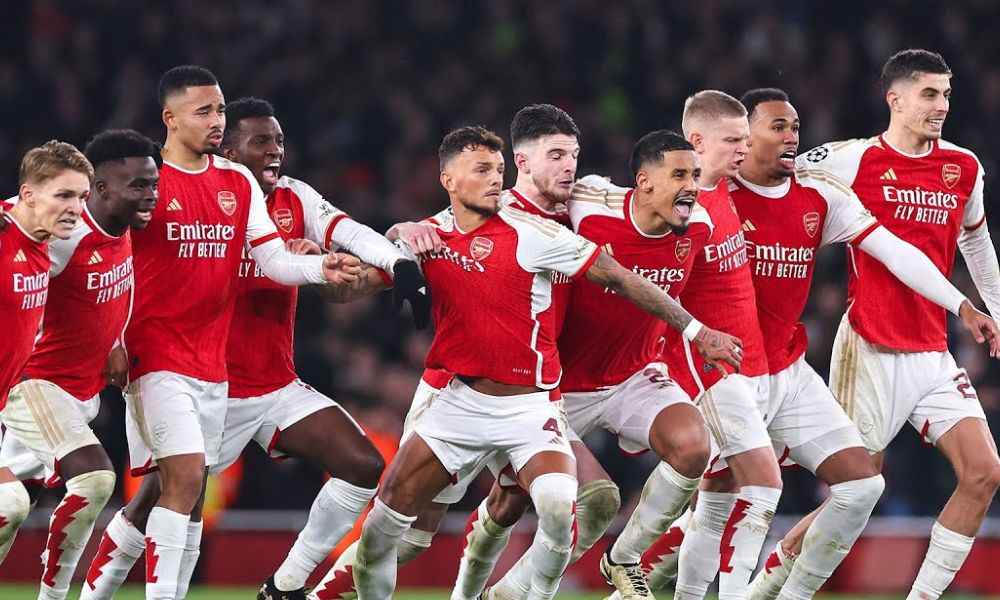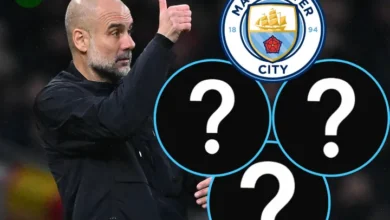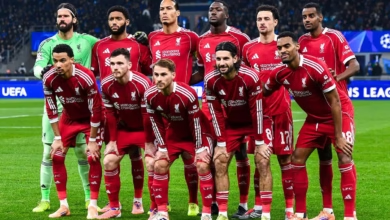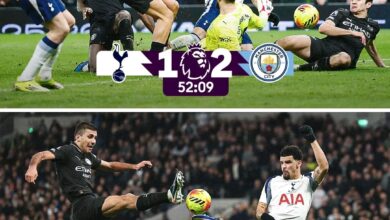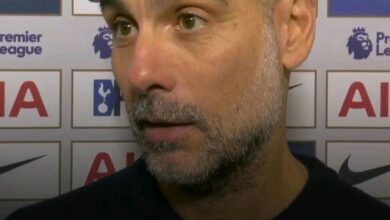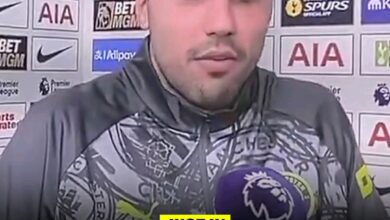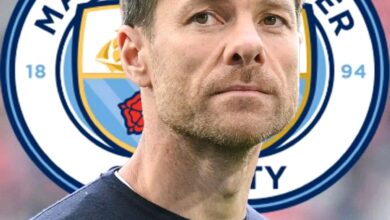The End of an Era: Gabriel Jesus’s Arsenal Journey Reaches Its Conclusion
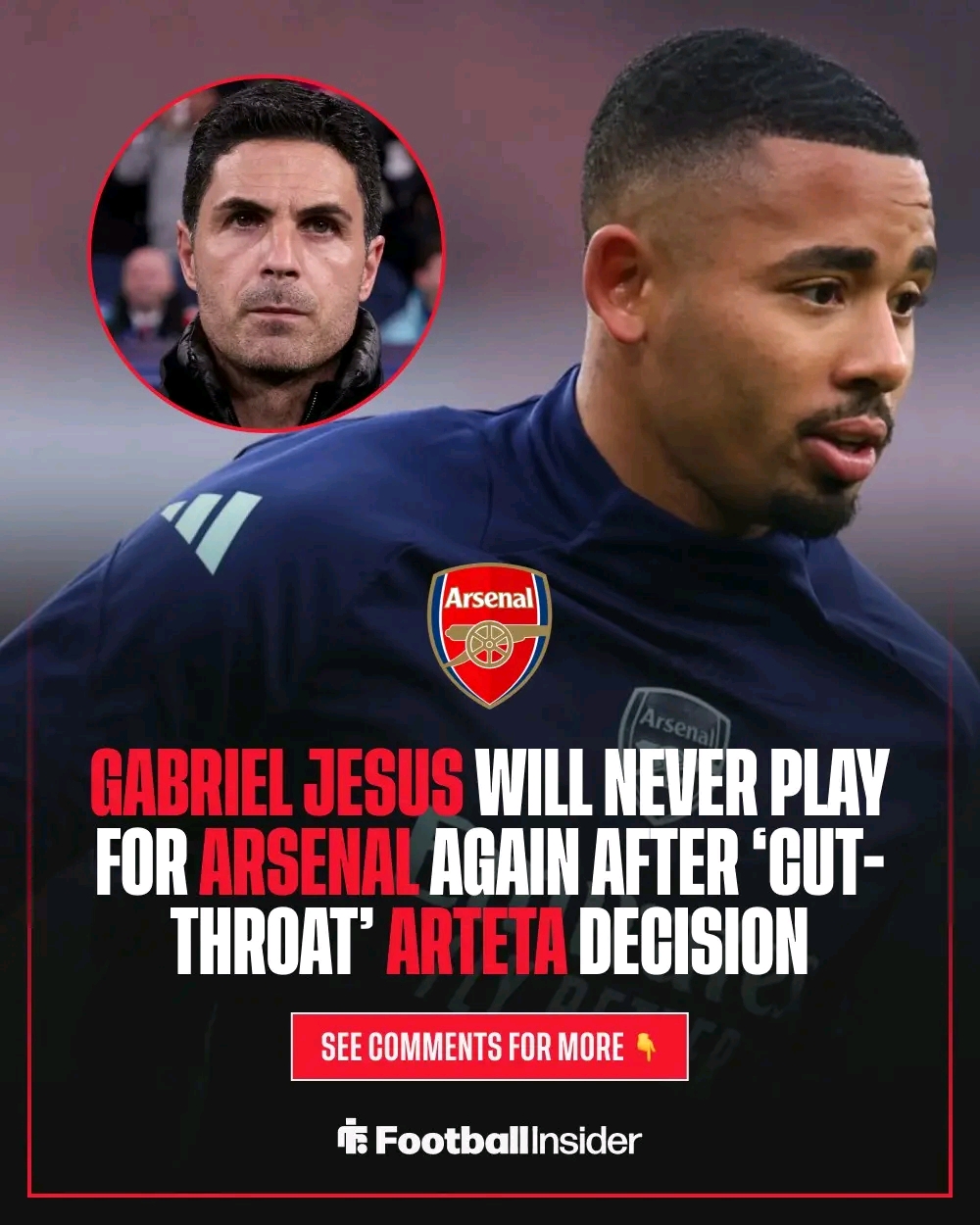
The summer transfer window of 2025 has brought significant changes to Arsenal’s attacking lineup, with none more consequential than the apparent conclusion of Gabriel Jesus’s tenure at the Emirates Stadium. The Brazilian striker, who arrived with considerable fanfare and expectation in 2022, now finds himself on the periphery of Mikel Arteta’s evolving vision for the club. What began as a promising partnership between player and manager has been derailed by persistent injury concerns and the relentless march of tactical evolution in North London.
When Arsenal secured Gabriel Jesus’s signature from Manchester City for £45 million in the summer of 2022, the move represented more than just a transfer – it symbolized the club’s ambition to return to the pinnacle of English football. Jesus, then 25, brought with him a wealth of Premier League experience, having been an integral part of Pep Guardiola’s trophy-laden City side. His versatility, work rate, and proven ability to perform in high-pressure situations made him an ideal fit for Arteta’s system, particularly given their shared history at the Etihad Stadium.
The initial signs were encouraging. Jesus quickly adapted to life at Arsenal, bringing an energy and directness that had been missing from the club’s attacking play. His ability to drop deep, link play, and create space for teammates like Bukayo Saka and Gabriel Martinelli proved invaluable during Arsenal’s early-season surge in the 2022-23 campaign. The Brazilian’s impact extended beyond mere statistics; he brought a winning mentality cultivated during his time with one of Europe’s most successful clubs.
However, football’s cruel unpredictability would soon intervene. Jesus’s journey at Arsenal has been defined not by his undoubted talent or tactical intelligence, but by a series of untimely injuries that have consistently disrupted his momentum and undermined his ability to establish himself as the club’s first-choice striker. The cruel irony is that his technical abilities and understanding of Arteta’s system have never been in question – it has been his body’s inability to withstand the physical demands of elite football that has ultimately sealed his fate.
Despite the challenges he has faced, Jesus’s statistical output at Arsenal tells the story of a player who has consistently contributed when available. His record of 26 goals and 17 assists in 96 appearances across all competitions demonstrates his quality and versatility. These numbers, while respectable, only hint at what might have been achieved had he remained consistently available for selection.
The 2024-25 season proved to be the most challenging of Jesus’s Arsenal career. A long-term knee injury sustained during the FA Cup clash with Manchester United in January 2024 effectively ended his campaign prematurely. This setback was particularly cruel given that he had been building momentum and finding his rhythm within Arteta’s system. The injury meant he made just six Premier League starts throughout the entire season, a dramatic reduction from his previous involvement.
This enforced absence came at a critical juncture for both player and club. Arsenal were mounting serious challenges for both the Premier League title and Champions League glory, competitions where Jesus’s experience and tactical understanding could have proved decisive. His absence, combined with similar injury problems affecting Kai Havertz, left Arteta scrambling for solutions in the final third and ultimately contributed to the club falling short of their ultimate objectives.
Throughout his injury layoff, Jesus demonstrated the professionalism and dedication that have characterized his career. Rather than retreating from public view, he regularly updated Arsenal supporters on his rehabilitation progress through social media channels. These glimpses into his recovery process revealed a player determined to return stronger and more motivated than ever.
The Brazilian’s work ethic during his recovery period has been exemplary. Reports from Arsenal’s training ground consistently highlighted his commitment to the rehabilitation process, often arriving early and staying late to complete additional sessions with the club’s medical staff. His positive attitude during what must have been a frustrating period demonstrated the mental resilience that helped him succeed at the highest level.
However, despite his best efforts and unwavering commitment to returning to full fitness, the football landscape at Arsenal was evolving rapidly. Arteta, under increasing pressure to deliver tangible success, could not afford to wait indefinitely for Jesus’s return. The manager’s decision-making has become increasingly pragmatic, driven by the harsh realities of elite football management where sentiment must often give way to sporting necessity.
Mikel Arteta’s tenure at Arsenal has been characterized by constant evolution and adaptation. The Spanish manager has never been afraid to make difficult decisions when he believes they serve the club’s long-term interests, and his handling of the Jesus situation exemplifies this approach. While the Brazilian’s injury problems have undoubtedly influenced the decision, it would be simplistic to attribute his marginalization solely to fitness concerns.
Arteta’s tactical philosophy has continued to develop during his time at Arsenal, with the manager placing increasing emphasis on physicality and aerial presence in the final third. This evolution has been driven partly by the challenges Arsenal have faced in breaking down deep-lying defenses, particularly in crucial matches where fine margins often determine outcomes. The manager’s desire for a more imposing physical presence in the penalty area has gradually shifted the profile of striker he believes can best serve his tactical vision.
The appointment of Andrea Berta as Arsenal’s new sporting director has also influenced the club’s transfer strategy. Berta’s arrival has coincided with a more aggressive approach in the transfer market, with the club securing high-profile signings like Martin Zubimendi and Noni Madueke. This increased activity suggests a coordinated effort to address the squad’s perceived weaknesses and provide Arteta with the tools necessary to compete at the highest level.
The signing of Viktor Gyokeres from Sporting CP represents the most significant development in Arsenal’s striker situation. The Swedish international’s remarkable scoring record – 97 goals across his previous two seasons in Portugal – has generated enormous excitement among Arsenal supporters and fundamentally altered the club’s attacking dynamics.
Gyokeres brings qualities that directly address Arsenal’s tactical needs. His imposing physical presence, exceptional aerial ability, and clinical finishing have made him one of Europe’s most sought-after strikers. At 26, he represents the perfect balance of experience and potential, arriving at Arsenal at the peak of his powers with several years of elite performance ahead of him.
The Swedish striker’s arrival effectively transforms Arsenal’s attacking hierarchy. His combination of physicality and technical ability makes him ideally suited to Arteta’s evolving system, providing the focal point that the team has often lacked in crucial moments. His proven ability to perform in high-pressure situations and deliver in important matches addresses one of Arsenal’s most persistent challenges in recent seasons.
For Jesus, Gyokeres’s arrival represents the final confirmation that his time at Arsenal is drawing to a close. The club’s investment in the Swedish striker signals their commitment to a different type of center-forward, one whose profile differs significantly from Jesus’s more fluid, technical approach. This shift in emphasis reflects not just tactical evolution but also the harsh realities of squad management at the highest level.
The current striker hierarchy at Arsenal paints a clear picture of Jesus’s diminished status within the squad. Viktor Gyokeres’s arrival has established him as the undisputed first-choice center-forward, while Kai Havertz’s versatility and recent performances have secured his position as the primary alternative. This development leaves Jesus as the third-choice option, a significant fall from the prominence he once enjoyed.
Mick Brown’s revelation that Arsenal are open to accepting offers for Jesus during the latter part of the transfer window confirms what many had suspected. The club’s willingness to entertain departure options suggests that internal discussions have already concluded that the Brazilian no longer fits into Arteta’s long-term plans. This represents a “cut-throat” decision, as described by observers, but one that reflects the unforgiving nature of elite football management.
The transformation of the pecking order has been gradual but decisive. Jesus’s extended injury absence provided Arteta with the opportunity to experiment with different approaches and personnel combinations. During this period, both Havertz and the youth players were able to demonstrate their capabilities, making Jesus’s eventual return less crucial to the team’s success.
Jesus’s situation at Arsenal exemplifies the cruel realities that define modern elite football. Despite his undoubted quality, professionalism, and commitment to the club, circumstances beyond his direct control have conspired to undermine his position. His injury problems, while unfortunate, have created opportunities for others and allowed tactical evolution to occur in his absence.
The Brazilian’s experience serves as a reminder that talent alone is insufficient at the highest level of football. Consistency, availability, and alignment with tactical requirements are equally important factors in determining a player’s long-term success. Jesus possesses the first quality in abundance but has struggled with the latter two during his time at Arsenal.
The situation also highlights the pressure faced by managers like Arteta, who must balance loyalty to players with the relentless demand for results. The Spanish manager’s decision to effectively move on from Jesus demonstrates the pragmatic approach required to succeed in modern football management. Personal relationships and past contributions must sometimes be set aside when they conflict with current sporting objectives.
Despite the disappointment of his Arsenal experience, Jesus’s career achievements remain impressive. His contributions to Manchester City’s historic Centurions season and subsequent successes established him as one of the Premier League’s most effective forwards. His international career with Brazil has also been distinguished, with his performances helping his country achieve success in major tournaments.
At 27, Jesus still has several years of elite football ahead of him. His technical ability, tactical intelligence, and experience make him an attractive proposition for clubs across Europe. The challenge now lies in finding the right environment where his qualities can be fully utilized and where injury problems can be minimized through careful management.
The striker’s next career move will be crucial in determining how his overall legacy is perceived. A successful transition to a new club could help him recapture the form and consistency that made him such a valuable player earlier in his career. Conversely, continued injury problems or poor team selection could further undermine his reputation and limit his future options.
Jesus’s situation also reflects the increasingly business-oriented nature of modern football. Arsenal’s willingness to move on from a player in whom they invested £45 million demonstrates the pragmatic approach required in today’s transfer market. The club’s decision is based not on sentiment or past contributions but on current performance levels and future projections.
This approach, while seemingly harsh, is necessary for clubs competing at the highest level. The financial implications of failing to achieve objectives far outweigh the emotional costs of difficult personnel decisions. Arsenal’s hierarchy has clearly concluded that the potential return from keeping Jesus no longer justifies his continued presence in the squad.
The timing of this decision is also significant. By making their intentions clear during the summer transfer window, Arsenal provides Jesus with the maximum opportunity to secure a move to a new club. This approach benefits all parties, allowing the player to find a new challenge while enabling Arsenal to reinvest any transfer fees received.
As Arsenal prepares for the 2025-26 season with their revamped attacking lineup, the absence of Jesus will be keenly felt by those who appreciated his contributions during his time at the club. His work rate, tactical intelligence, and technical ability made him a popular figure among teammates and supporters alike. However, football’s relentless forward momentum means that sentimentality cannot override sporting necessity.
For Jesus, the immediate priority must be securing a move to a club where he can rediscover his best form and contribute meaningfully to team success. His experience and quality ensure that there will be no shortage of interested parties, but the key will be finding the right fit both tactically and environmentally.
The Brazilian’s Arsenal chapter may be concluding, but his overall story in elite football continues. The lessons learned from his injury struggles and tactical evolution at Arsenal could prove valuable in his next challenge. His resilience and professionalism throughout difficult periods suggest that he possesses the mental strength required to bounce back from this setback.
Gabriel Jesus’s time at Arsenal will be remembered as a period of promise ultimately unfulfilled due to circumstances largely beyond his control. His injury problems and the club’s tactical evolution combined to create a situation where departure became inevitable despite his undoubted quality and commitment.
The Brazilian’s legacy at Arsenal extends beyond mere statistics or trophies won. His professionalism during difficult periods, his positive influence on younger players, and his tactical intelligence all contributed to the club’s development during a crucial transitional phase. While his departure may be disappointing for those who believed in his potential, it represents the natural evolution of a squad determined to achieve the highest honors.
As Arsenal moves forward with their new striking options and Jesus seeks a fresh start elsewhere, both parties can reflect on a relationship that, while not ultimately successful, was characterized by mutual respect and shared ambition. In the unforgiving world of elite football, sometimes that is the best outcome possible when sporting and personal circumstances align against success.
The story of Gabriel Jesus at Arsenal serves as a reminder that football careers are shaped by countless variables, many beyond individual control. While his chapter at the Emirates Stadium may be closing, his broader story in the beautiful game continues, carrying with it the experience and wisdom gained from both triumph and adversity in North London.
